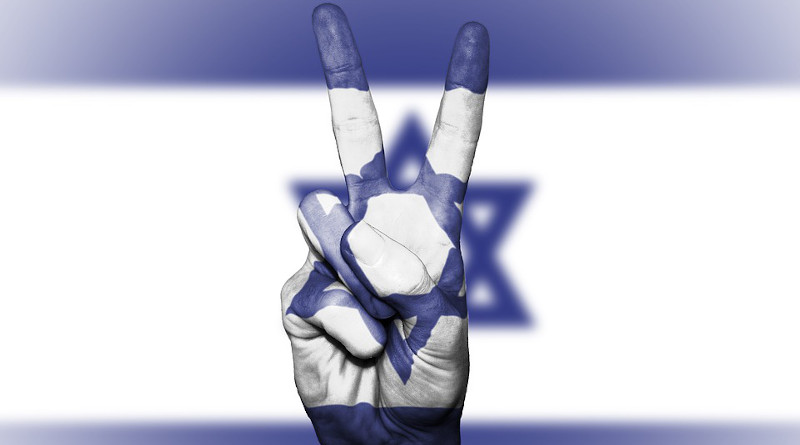Israeli Law Threatens Mass Deportation – OpEd
By MIFTAH
Palestinians were outraged on April 12, when Haaretz’ Amira Hass broke the story of renewed Israeli military order 1650, which threatens to turn thousands of Palestinians living in the West Bank into illegal “infiltrators.” The order, which is an amendment of a 1969 military order, deems anyone who is living in the West Bank without the proper Israeli license as categorized as an infiltrator and punishable with deportation or a prison sentence of up to seven years. While Israel has attempted to downplay the order by saying that it only targets foreigners who have overstayed their visas in the West Bank, Palestinians are not buying it. The Gaza-based Mezan Center said the order is, “directed at what appear to be specific groups, which include Palestinians from Gaza and their offspring as well as foreign citizens who support the rights of the Palestinian people and stay in the West Bank.” According to Palestinian statistics, this could mean up to7,000 people residing in the West Bank.
Senior Hamas official Ismail Radwan, called on Palestinians to confront the Israeli order “until this decision is cancelled,” calling the decision racist and aimed at “clearing the land of its indigenous people.”
The order legally went into effect on April 13, but the Israeli army has yet to deport or imprison anyone on grounds of it.
Meanwhile, on April 16, Prisoner Affairs Minister Issa Qaraqe announced that 26-year old Raed Hammad died while incarcerated in an Israeli prison. According to fellow prisoner Abdel Nasser Farawneh, Hammad died as a result of “intentional medical negligence” noting that he is the 198th Palestinian to die in Israeli prisons since the latter’s occupation of the West Bank and Gaza Strip in 1967. According to the ministry, despite the fact that Hammad was not well, Israeli prison authorities still moved him into solitary confinement at the Eshel Prison.
Hammad’s death coincides with Palestinian Prisoners’ Day, which was marked by demonstrations and marches throughout the West Bank and Gaza. Currently there are close to 10,000 Palestinians in Israeli jails. Protesters called for the release of all prisoners from Israeli jails as a prerequisite for peace. On a similar note, on April 15, the father of captured Israeli soldier Gilad Shalit sent a letter to Hamas politburo chief Khaled Meshaal, urging him to accept the prisoner swap deal offered by the German mediator, which stipulates the release of 1,000 Palestinian prisoners for his son.
Death filled the Gaza Strip this week, with Israeli forces killing an Aqsa Martyr’s Brigades operative along the border on April 16. According to a communiqué released by the group, the men clashed with Israeli troops which infiltrated Gaza. Israeli army sources say the man was planting explosives when they shot and killed him. Another man was taken to hospital with wounds. On April 13, two other Palestinian gunmen were killed in the Strip during armed clashes. Israel claimed it killed four Aqsa Brigades operatives.
Then on April 15, the Hamas de facto government executed two Palestinians charged with collaboration with Israel. Nasser Abu Fraih and Mohammed Ismail were executed by firing squad upon orders from the interior ministry. Both Palestinian and Israeli human rights groups denounced the executions. The Palestinian Center for Human Rights said it rejected the death sentence, calling it, “a grave and unjustified violation of the right to life and a form of torture and cruel and inhumane treatment.”
Meanwhile, settler violence gripped many areas of the West Bank this week. On April 16, two cars belonging to residents of Huwwara were torched by Jewish settlers. Other cars had the words “price tag” scrawled across them. Settlers, apparently from Yitzhar also vandalized the Bilal bin Rabah mosque in the village, spraying the Star of David near the word Mohammed on the mosque walls. The words “Thank you God, for not making me a Gentile” were also spray-painted elsewhere in the village.
On that same day, over 300 olive tree saplings were uprooted in the Ramallah-area village of Mikhmas, also by settlers, most likely from the illegal settlement outpost of Migron. Villagers say this is not the first time the settlers vandalize their property.
On April 14, Israeli authorities handed confiscation orders to Palestinians from Anata northeast of Jerusalem. Head of the village council, Mohammed Allan said Israel intends to expropriate hundreds of dunums of land according to the military orders. Also on the 14th, Israeli troops demolished two homes in Al Khader and Hares villages. In the illegal Jerusalem-area settlement of Gilo, Israeli army radio announced that the west Jerusalem municipality intends on building a synagogue and school in the settlement on confiscated Palestinian lands.
In the meanwhile, US President Barack Obama is in a bind over the Middle East. At a press conference at the Nuclear Security Summit on April 13, Obama said the US could not impose solutions to any problem, the Palestinian-Israeli conflict notwithstanding, unless the parties are willing to “break out of their old patterns of antagonism.”
However, the US administration seems to be expressing a bit of frustration with Israel these days over its intransigence. On April 15, US Secretary of State Hillary Clinton said in Washington that “Israel could not avoid the difficult choices required to achieve peace with the Palestinians.” She added that the elaborate security system Israel has placed around itself is not a substitute for a lasting solution. “Some have come to believe that Israelis, protected by walls and buoyed by a dynamic economy, can avoid the hard choices that peace requires,” she said at the opening speech of the Daniel Abraham Center for Middle East Peace. “[It] would mean continuing an impasse that carries tragic human costs, denies Palestinians their legitimate aspirations, and threatens Israel’s long term future as a secure and democratic Jewish state,” she said.

